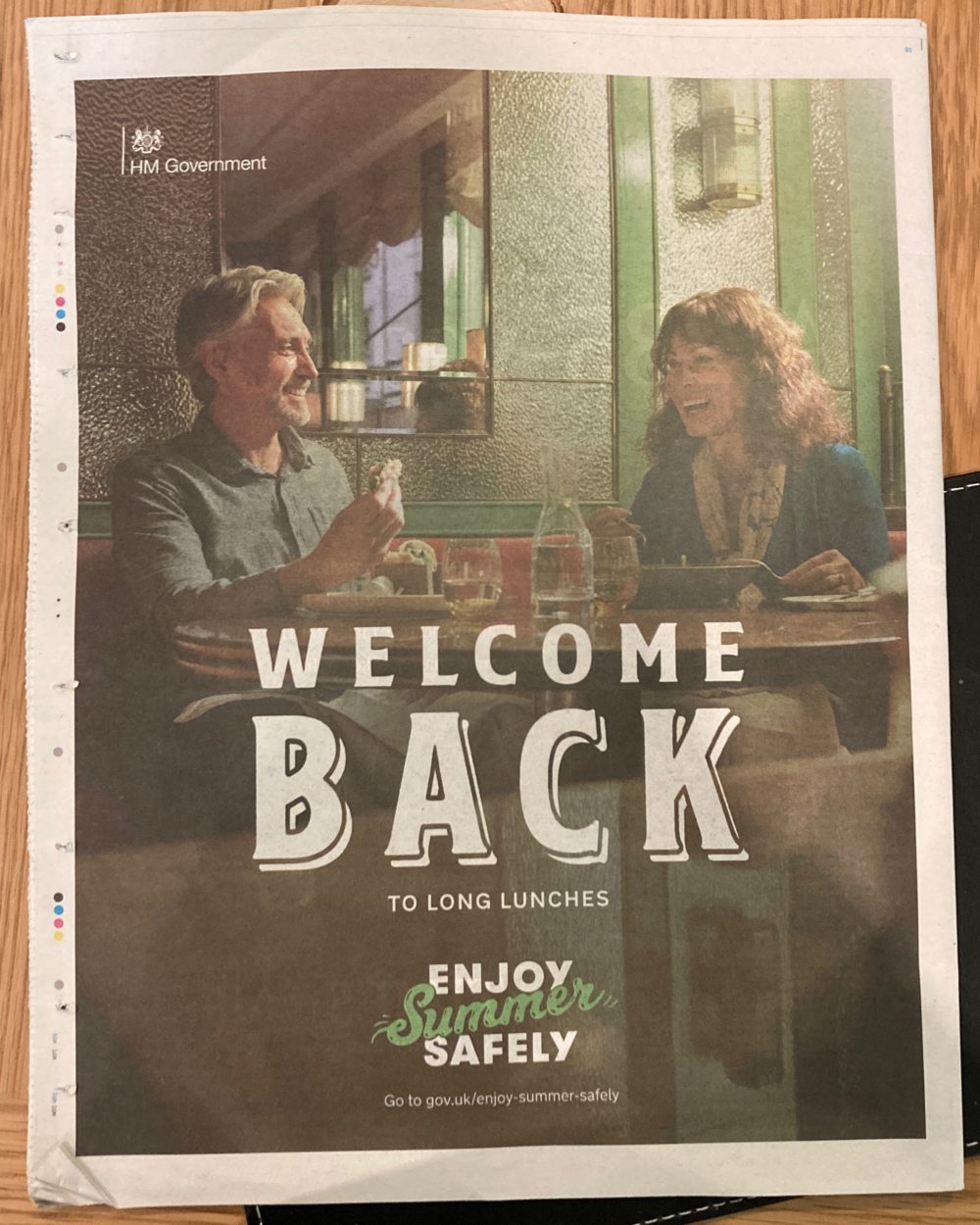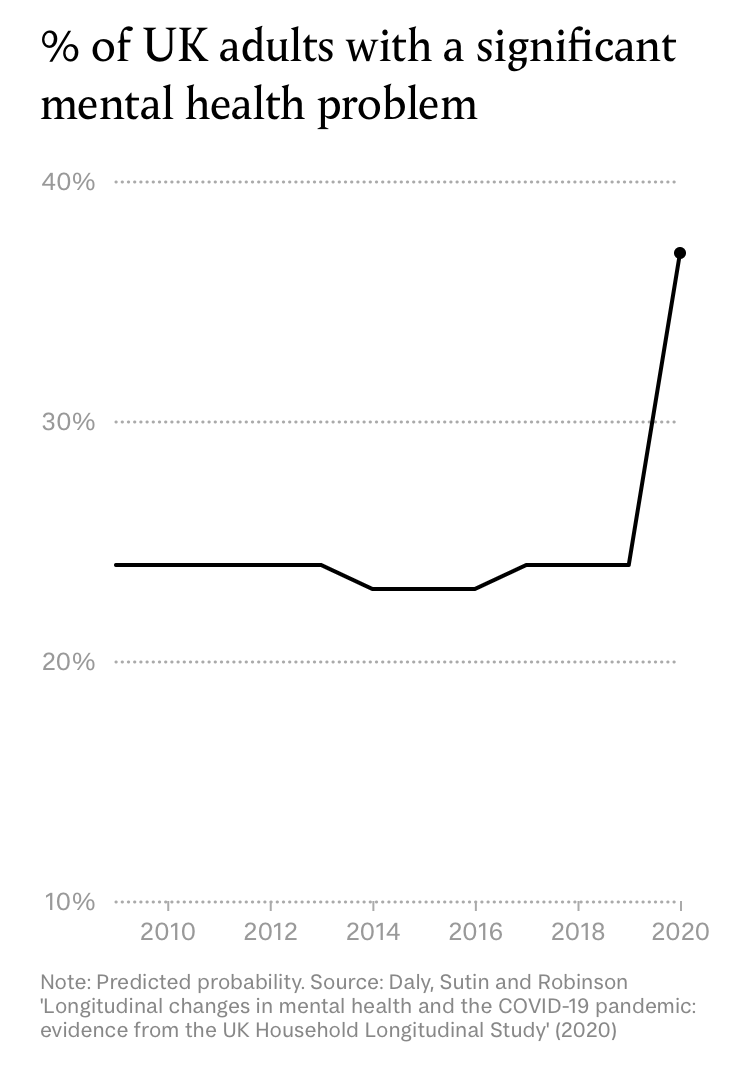Five links worth clicking
The first in an occasional series of posts listing things I’ve enjoyed on the web recently.
The UK faces an energy crisis. Could nuclear play a vital role?
In this article for the FT Weekend, Jonathan Ford provides some great analysis and colour around the decommissioning of end-of-life nuclear power plants and the function of the Sellafield site in dealing with nuclear waste.
Everyone knows that midday desert sun can be harmful if one lies in it without protection. And everyone knows that moonlight is essentially harmless. Yet, moonlight and sunshine are made up of the same photons. The former is simply harmless because it is 400,000 times less bright than sunshine. Nuclear radiation can be like sunlight, and it can be like moonlight.
When I think of decommissioning a nuclear power plant, I think of dealing with prodigious quantities of radiation. I’ve never thought about the compounding effect of radiation on the other hazardous materials on site, such as asbestos: and, of course, the vintage of the estate being decommissioned means there’s plenty of that around.
Last year, I read Lorna Arnold’s investigation into the Windscale fire of 1957 which the Ford mentions at the start of this article. If you like Ford’s article, you might also like Arnold’s book.
And if you wonder what’s driving up energy prices, James Meek’s recent article in the LRB is revealing.
File not found
This fascinating article for The Verge by Monica Chin discusses the fact that younger people are unfamiliar with both the concept of directory filing in computing and the underlying metaphors the system represents. This is presenting particular problems for students studying STEM subjects where they need to use command-line interfaces, which are reliant on exact descriptions of file locations.
Students have had these computers in my lab; they’ll have a thousand files on their desktop completely unorganised. I’m kind of an obsessive organizer … but they have no problem having 1,000 files in the same directory. And I think that is fundamentally because of a shift in how we access files.
This rings true in my life, too. I’m the youngest of four consultants in our team at work, and the only one who doesn’t have folders in which to file emails. I rely entirely on search to find things, having made the shift after reading evidence that this method was far more efficient. Though I’ll confess that I recently moved from storing everything in Outlook’s ‘Deleted Items’ to storing everything in a gigantic ‘Archive’ folder out of fear that some system administrator might commit the heinous crime of deleting my ‘Deleted Items’.
However, perhaps indicative of my ‘in-between’ age, I still use structured directories for files, mostly because the search functions in the file storage systems I use are pretty poor. On Apple systems, I do use tags to cross-cut my directory structure (with, for example, a tag called ‘Work – needs updating’ and another called ‘Work – quick reference’) but I’m mostly a file-structure kind of person.
I wonder if this is something me and my colleagues need to rethink. We have an intricately structured shared drive at work, and yet I note that many of my (mostly younger) colleagues have desktops resembling that described by Peter Plavchan in the above quotation. Maybe we need a collective system that’s more searchable and less navigable. Though, of course, the latter is the problem: a ‘big bucket’ approach to file management isn’t great for discovery, or for going back years later to locate something vaguely recollected which was created by someone who has since left the organisation.
I’m very forgetful. I can lead big projects and, within a year, forget that I’ve done them. If I regularly had to encounter an email directory structure that referenced the project, maybe I’d retain the knowledge for longer. Perhaps a search-based approach is poorer for mental retention.
Beauty and decay: inside America’s derelict movie theatres
This Wallpaper article by Harriet Lloyd-Smith may essentially be advertorial for a recently published photo book, but oh my it features some beautiful photographs of dilapidated cinemas by Yves Marchand and Romain Meffre.
There’s beauty in the flaking paint, opulence in the rows of tattered crushed-velvet seats, stories retained in the defunct equipment and abandoned concession stands. Laughs, tears, screams and gasps live on in the crumbling cornices.
I’ve long been a bit of a sucker for this kind of photography. There’s something about the way it reminds me that “this too shall pass” that I find oddly comforting. Nothing lasts forever.
A piano down a mine
This Van piece by Hugh Morris is an entertaining discussion of comedy based on classical music: the sort of stuff Tim Minchin and Bill Bailey get up to.
The idea of good humor punching up is key. But mocking the conventions of a musical culture which is fundamentally a bit silly—people dress up in old-fashioned outfits to play music from ages ago for a group of people sitting in complete silence—comes with a warning. While it’s easy to mock classical music’s foibles, those gags can easily be perceived as jibes or slights, which can then underpin whole ecosystems’ oddly negative behaviors.
This is one to click on when you’ve time to click through and watch the various cited routines, rather than just as something to read. Some of them were new to me, and others I was amused by revisiting. It also brought this delightfully silly story about an error in the Welsh Government’s coronavirus guidance to my attention for the first time.
For my money, the article could have been rounded out with at least a passing mention of Mozart in the Jungle as a recent(ish) TV dramedy in this arena which I very much enjoyed. What other series would invite Lang Lang for a cameo and overdub him with Daft Punk—to brilliant effect?
Bo Burnham: Inside
This Netflix lockdown special by musical comedian Bo Burnham is excellent. It was written, directed and filmed solely by Burnham in a room of his house, which seems an extraordinary achievement.
But still more interesting is how Burnham brings his occasionally dark sense of humour to the experience of lockdown life, and openly and frankly discusses the mental health aspects (including his own pre-lockdown mental health problems). This turns his comedy special into something quite moving, and surprising insightful, as well as very funny.
I know Bo Burnham isn’t for everyone, and indeed he’s never really made much impact on this side of the Atlantic, but I think this comedy special is well worth watching.
This post was filed under: Five links worth clicking, Bo Burnham, FT Weekend, Harriet Lloyd-Smith, Hugh Morris, James Meek, Jonathan Ford, Lorna Arnold, Monica Chin, Mozart in the Jungle, Netflix, Nuclear Power, Romain Meffre, The Verge, Van, Wallpaper, Yves Marchand.


